Hygiene Contamination

What is the correct way to put on and take off PPE to avoid contamination ?
When putting on and taking off personal protective equipment (PPE), it is crucial to follow the correct steps to avoid contamination. Before donning any PPE, proper hand hygiene should be practiced by washing hands with soap and water for at least 20 seconds or using an alcohol-based hand sanitizer. After putting on a disposable gown or apron, gloves should be put on next, followed by a face shield or goggles, a mask, a hair covering if required, and shoe covers if necessary. When removing PPE, hand hygiene should be performed after each piece is removed, starting with the mask, followed by the face shield or goggles, gloves, gown or apron, and finally performing thorough hand hygiene again. By following these steps, the risk of contamination can be significantly reduced, protecting both the individual and others from potential exposure to hazardous materials or infectious agents.

How can cross-contamination be prevented in a commercial kitchen ?
Cross-contamination is a significant concern in commercial kitchens, where food safety and quality are paramount. To prevent it, strict procedures and practices must be implemented to minimize the risk of harmful bacteria or allergens spreading from one food item to another. Key strategies include using separate cutting boards and utensils for different types of food, proper handling of raw foods, sanitizing work surfaces and equipment, avoiding cross-contact during cooking, safe storage practices, allergen management, and maintaining personal hygiene and staff training. By implementing these practices, you can significantly reduce the risk of cross-contamination in your commercial kitchen, ensuring that your customers receive safe and high-quality meals every time.

Why is personal hygiene important for those who handle or prepare food ?
Personal hygiene is critical for food handlers due to its impact on health, safety, and quality assurance. Cross-contamination and allergen transfer can lead to illnesses, while cleanliness affects food presentation and flavor. Handwashing, proper grooming, and workstation cleaning are essential practices to maintain hygiene.

What is the significance of personal hygiene in food handling ?
Personal hygiene is crucial for food safety, public health protection, and maintaining quality in the food industry. It prevents cross-contamination, reduces disease transmission, and enhances food quality. Adherence to personal hygiene standards impacts regulatory compliance, consumer trust, and economic implications within the food industry.

What are the key principles of food hygiene and safety ?
Food hygiene and safety are crucial in preventing foodborne illnesses and ensuring the well-being of consumers. Key principles include personal hygiene such as washing hands thoroughly, covering cuts and sores, avoiding contaminating surfaces, and wearing appropriate clothing; food handling including keeping food at safe temperatures, cooking food thoroughly, using separate utensils, and avoiding reusing cooking oil; sanitation such as cleaning equipment regularly, sanitizing surfaces, and controlling pests; and storage such as storing food properly, refrigerating leftovers promptly, and labeling and dating products. By following these principles, you can help protect yourself and others from foodborne illnesses and enjoy safe, healthy meals.

What steps should be taken to maintain good hygiene during travel ?
The text provides a comprehensive guide on maintaining good hygiene during travel. It emphasizes the importance of packing essential hygiene items, keeping hands clean, practicing safe eating habits, staying clean and fresh, being mindful of surroundings, keeping living spaces clean, and following local customs. The article underscores that maintaining good hygiene is crucial to staying healthy and enjoying a pleasant travel experience.

Can poor personal hygiene lead to skin problems ?
Poor personal hygiene can lead to a variety of skin problems, including bacterial and fungal infections, irritation and inflammation, and other conditions. To prevent these issues, it's important to practice good hygiene, such as regular showering, wearing clean clothes, hand washing, moisturizing, and sun protection.

How can I teach my children about the importance of personal hygiene ?
Teaching personal hygiene to children is crucial for their development. Start with basic concepts and gradually introduce more complex ones as they grow. Emphasize hand washing, covering mouth while coughing, daily bathing, and teeth brushing. Lead by example, make hygiene fun, educate consistently, and use visual aids. Handle resistance with negotiation, incentives, and explaining consequences. Maintaining hygiene habits requires ongoing education on puberty, menstrual hygiene, etc.
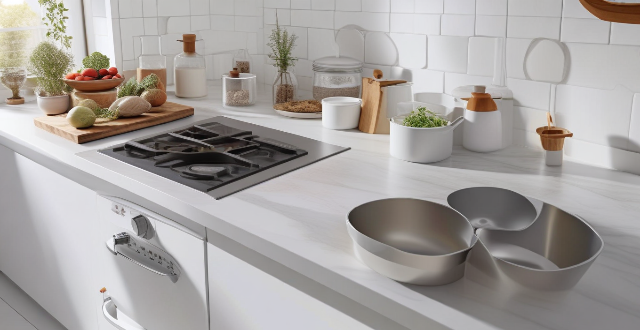
How can cross-contamination be prevented in a kitchen ?
Cross-contamination in kitchens can be prevented through various methods, including maintaining personal hygiene, proper food preparation, using correct cooking techniques, implementing appropriate storage practices, following cleaning routines, and managing waste effectively. These practices are crucial for ensuring food safety and avoiding foodborne illnesses.

What role does nutrition play in maintaining personal hygiene ?
The article emphasizes the importance of nutrition in maintaining personal hygiene. It suggests consuming nutrient-rich foods, developing healthy dietary habits, and supporting the immune system through nutrition to improve overall health and hygiene.

In what ways does poor personal hygiene impact mental health ?
Poor personal hygiene can negatively affect mental health by causing decreased self-esteem, social isolation, and exacerbating symptoms of mental health disorders. It is important to maintain good hygiene habits for overall well-being.

What is the significance of regular bathing in personal hygiene ?
Bathing regularly is essential for maintaining good personal hygiene, offering benefits such as dirt and sweat removal, prevention of body odor, promotion of blood circulation, stress and anxiety reduction, and maintenance of good grooming habits.

What are the best practices for handling and preparing raw meat to prevent contamination ?
To prevent contamination when handling and preparing raw meat, it is essential to wash hands before and after handling the meat, clean utensils and surfaces with hot, soapy water or a bleach solution, keep raw meat cold in the refrigerator or freezer, avoid cross-contamination by not letting raw meat come into contact with ready-to-eat foods, cook meat thoroughly using a food thermometer, and store cooked meat properly in the fridge or freezer. By following these best practices, you can ensure that the meat you prepare is safe to eat and reduce the risk of contaminating your kitchen.
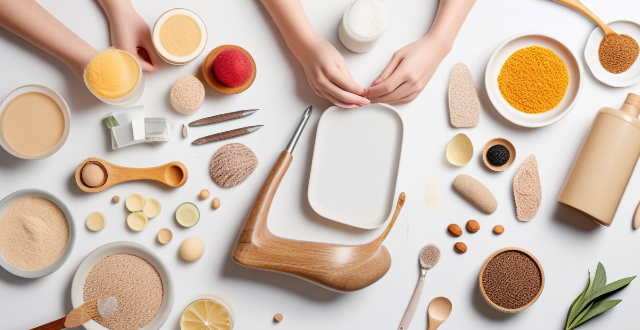
How does one's personal hygiene affect their social interactions ?
Personal hygiene is crucial for positive social interactions, boosting confidence, and maintaining good health. Good hygiene habits include regular bathing, teeth brushing, wearing clean clothes, hand washing, and taking care of skin and hair. Poor hygiene can lead to social isolation, misunderstandings, and health risks. Following simple tips can ensure that personal hygiene positively impacts social interactions.
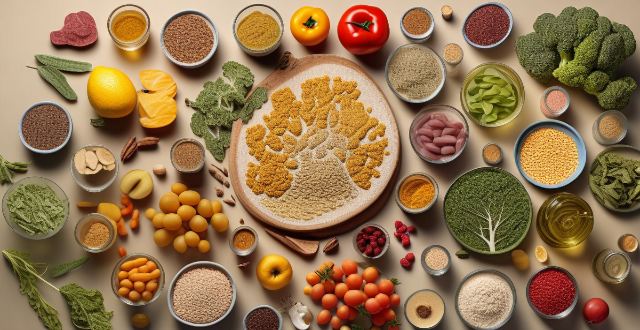
Is it safe to use scented feminine hygiene products ?
This article discusses the potential risks and benefits associated with using scented feminine hygiene products. Possible risks include allergic reactions, hormonal imbalances, and environmental impact, while benefits include personal comfort, confidence, variety, and enjoyment. It is important for individuals to consider their own needs and preferences when choosing whether or not to use scented feminine hygiene products and to consult with a healthcare professional regarding any concerns or questions about specific products.

Is there a difference between personal hygiene and cleanliness ?
Personal Hygiene and Cleanliness are often used interchangeably, but they have distinct meanings. Personal hygiene focuses on the individual's physical well-being, while cleanliness focuses on the environment's tidiness and orderliness. Both are essential for maintaining good health and preventing the spread of infections.

Can using certain feminine hygiene products cause infections or irritation ?
"Can Using Certain Feminine Hygiene Products Cause Infections or Irritation?": This article explores the potential risks associated with using various feminine hygiene products, including infections and irritation. It provides tips on how to prevent these risks by choosing appropriate products, practicing good hygiene, and consulting a healthcare provider if necessary. The article emphasizes the importance of using these products correctly and mindfully to maintain personal hygiene without compromising one's health.
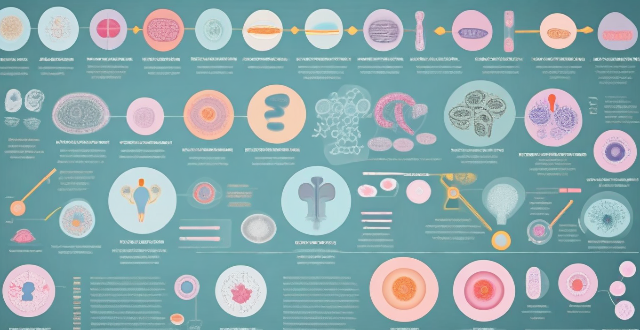
What are the risks associated with poor personal hygiene on health ?
This article discusses the risks associated with poor personal hygiene on health. It highlights various infections and illnesses that can occur due to poor hygiene practices, including skin infections, respiratory infections, gastrointestinal infections, urinary tract infections, sexually transmitted infections, and mental health issues. The article emphasizes the importance of maintaining good personal hygiene habits to prevent these health risks and promote overall well-being.

How often should I wash my hands to maintain good hygiene ?
Washing hands is an essential part of maintaining good hygiene. It helps prevent the spread of germs and diseases, especially during these times of COVID-19. Here are some tips on how often you should wash your hands: before eating or preparing food, after using the bathroom, after coughing/sneezing/blowing your nose, before touching someone else's face, and after handling dirty objects. It's important to wash your hands frequently throughout the day to maintain good hygiene and prevent the spread of germs and diseases.
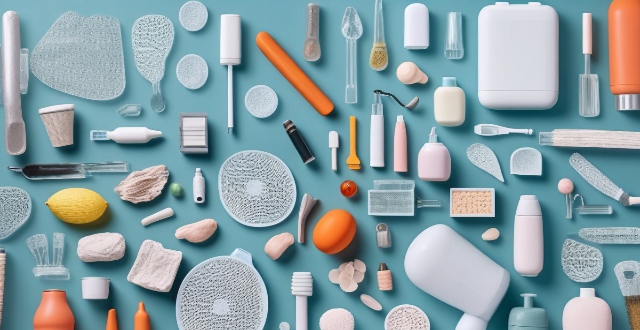
Are there any specific products or tools recommended for optimal oral hygiene ?
Optimal oral hygiene is crucial for overall health. Recommended products and tools include electric or manual toothbrushes, fluoride or whitening toothpaste, dental floss, interdental cleaners, antibacterial or fluoride mouthwash, tongue scrapers, and water flossers. Tips for optimal oral hygiene include regular brushing and flossing, regular dental check-ups, a healthy diet, quitting smoking, and drinking water after meals.

What is the importance of dental hygiene in pets and how can it be maintained ?
The Importance of Dental Hygiene in Pets Dental hygiene is a crucial aspect of your pet's overall health and well-being. Poor dental hygiene can lead to various health issues, including bad breath, gum disease, tooth loss, and even more severe problems like heart, liver, or kidney disease. Therefore, maintaining good dental hygiene for your pets is essential. Maintaining dental hygiene in pets involves several steps that should be incorporated into their daily routine. These steps include regular brushing, dental chews and toys, regular checkups with a veterinarian, specialized dental foods, and homemade remedies. Incorporating these steps into your pet's daily routine can help keep their teeth healthy and prevent potential health issues down the line.

What are the best disinfection methods for public spaces during a pandemic ?
Best disinfection methods for public spaces during a pandemic include regular cleaning and disinfection, use of UV-C light disinfection, hand hygiene facilities, and air filtration systems. Regular cleaning and disinfection of high-touch surfaces helps to remove any potential contaminants and reduce the risk of transmission. UV-C light has been shown to effectively kill viruses and bacteria by damaging their DNA or RNA structure. Providing adequate hand hygiene facilities encourages individuals to maintain good hand hygiene practices. Installing air filtration systems with HEPA filters can help to reduce the concentration of airborne particles in public spaces.
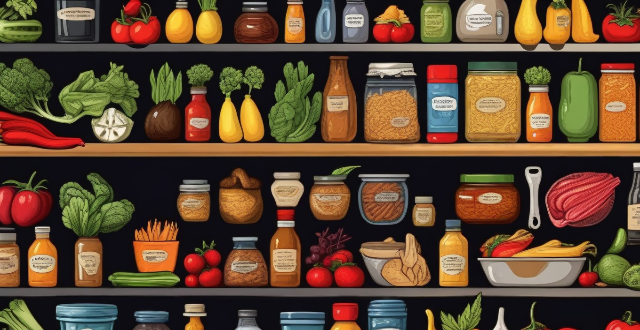
What are some common causes of foodborne illnesses ?
Food safety is a major concern for consumers, and there are several types of contaminants that can make food unsafe to eat. Bacterial contamination is the most common type, with Escherichia coli (E. coli), Listeria monocytogenes, Salmonella, Staphylococcus aureus, and Campylobacter jejuni being some of the most common bacteria that can cause foodborne illness. Viral contamination is also a concern, with norovirus, rotavirus, hepatitis A virus (HAV), and enteroviruses being some of the most common viruses that can cause foodborne illness. Parasitic contamination is less common but still a concern, with Giardia lamblia and Cryptosporidium parvum being two of the most common parasites that can cause foodborne illness. Chemical contamination is also a concern, with heavy metals, pesticides and herbicides, dioxins and PCBs being some of the most common chemicals that can contaminate food. Finally, there have been several outbreaks of foodborne illness in recent years, including outbreaks of E. coli O157:H7 in spinach in the United States in the late 1980s and early '90s, outbreaks of Listeria in deli meats in Canada in the late '90s and early '00s, and outbreaks of norovirus in cruise ships in recent years.

Is it safe to eat street food when traveling in China, and how can I avoid getting sick ?
Street food in China can be a delightful culinary experience, but it's important to take precautions to avoid food safety issues. Risks include bacterial contamination, food poisoning, and allergic reactions. However, street food offers cultural immersion, affordability, and diverse options. To minimize health risks, choose reputable vendors, avoid risky foods, practice good hygiene, start with small portions, and drink bottled water. By being cautious, you can safely enjoy the delicious street food in China.

How often should protective clothing be replaced or cleaned ?
Protective clothing is essential in various industries and situations to ensure the safety and health of workers. It is crucial to maintain the effectiveness of protective clothing by replacing or cleaning it regularly. The frequency of replacement or cleaning depends on various factors such as the type of protective clothing, level of exposure, manufacturer's recommendations, and personal hygiene. Disposable protective clothing should be replaced after each use, while reusable protective clothing can be cleaned and reused multiple times. Always follow the manufacturer's recommendations and maintain personal hygiene by changing into clean protective clothing when necessary. By doing so, you can ensure the effectiveness of protective clothing in preventing contamination and protecting workers from hazardous substances.

What are the best practices for personal hygiene ?
Personal hygiene is essential for maintaining good health and preventing the spread of illnesses. Best practices include washing hands regularly, showering daily, brushing teeth twice a day, wearing clean clothes, trimming nails, covering mouth when coughing or sneezing, avoiding touching face, keeping living space clean, getting enough sleep, and staying hydrated.

How do street food vendors keep their food safe and hygienic ?
Street food vendors play a crucial role in providing affordable and delicious meals to millions of people worldwide. However, ensuring that their food is safe and hygienic can be challenging due to various factors such as limited space, lack of proper equipment, and unpredictable weather conditions. In this article, we will discuss some effective ways street food vendors can maintain the safety and cleanliness of their food.

What is the importance of dental hygiene in overall health ?
The Importance of Dental Hygiene in Overall Health Dental hygiene is an essential aspect of maintaining good overall health. Poor dental hygiene can lead to a range of health problems, including gum disease, tooth decay, and bad breath. In this article, we will explore the importance of dental hygiene in overall health and provide tips for maintaining good oral health. How Dental Hygiene Affects Overall Health Gum Disease: Gum disease, also known as periodontal disease, is caused by the buildup of plaque on the teeth and gums. If left untreated, it can lead to inflammation, infection, and even tooth loss. Gum disease has been linked to several systemic health problems, including heart disease, diabetes, and respiratory disease. Tooth Decay: Tooth decay occurs when bacteria in the mouth produce acids that eat away at the enamel on the teeth. This can lead to cavities, pain, and even tooth loss if left untreated. Tooth decay can also affect overall health by causing digestive problems and nutritional deficiencies. Bad Breath: Bad breath, also known as halitosis, is often caused by poor dental hygiene. It can be embarrassing and may even affect social interactions. In some cases, chronic bad breath can be a sign of underlying health problems, such as gum disease or respiratory infections. Tips for Maintaining Good Oral Health Brush Your Teeth Twice a Day: Brushing your teeth twice a day with fluoride toothpaste helps remove plaque and bacteria from your teeth and gums. Floss Daily: Flossing daily helps remove plaque and bacteria from between your teeth where your toothbrush cannot reach. Visit Your Dentist Regularly: Regular dental checkups and cleanings can help identify and treat potential problems early on before they become more serious. Eat a Healthy Diet: Eating a healthy diet low in sugar and high in nutrients can help keep your teeth and gums healthy. Drink Water: Drinking water throughout the day helps rinse away food particles and bacteria in your mouth. Avoid Tobacco Products: Smoking or using other tobacco products can increase your risk of developing gum disease and other oral health problems. Limit Alcohol Consumption: Drinking too much alcohol can dry out your mouth and increase your risk of developing gum disease and other oral health problems.

How can I establish a daily personal hygiene routine ?
Establishing a daily personal hygiene routine is essential for maintaining good health and well-being. The routine includes morning, midday, and evening practices such as brushing teeth, showering, washing hands, applying deodorant, eating a healthy breakfast, drinking water, taking breaks, tidying up workspace, removing makeup, changing into clean pajamas, and getting enough sleep. Following these steps can help keep you clean, healthy, and confident throughout the day.